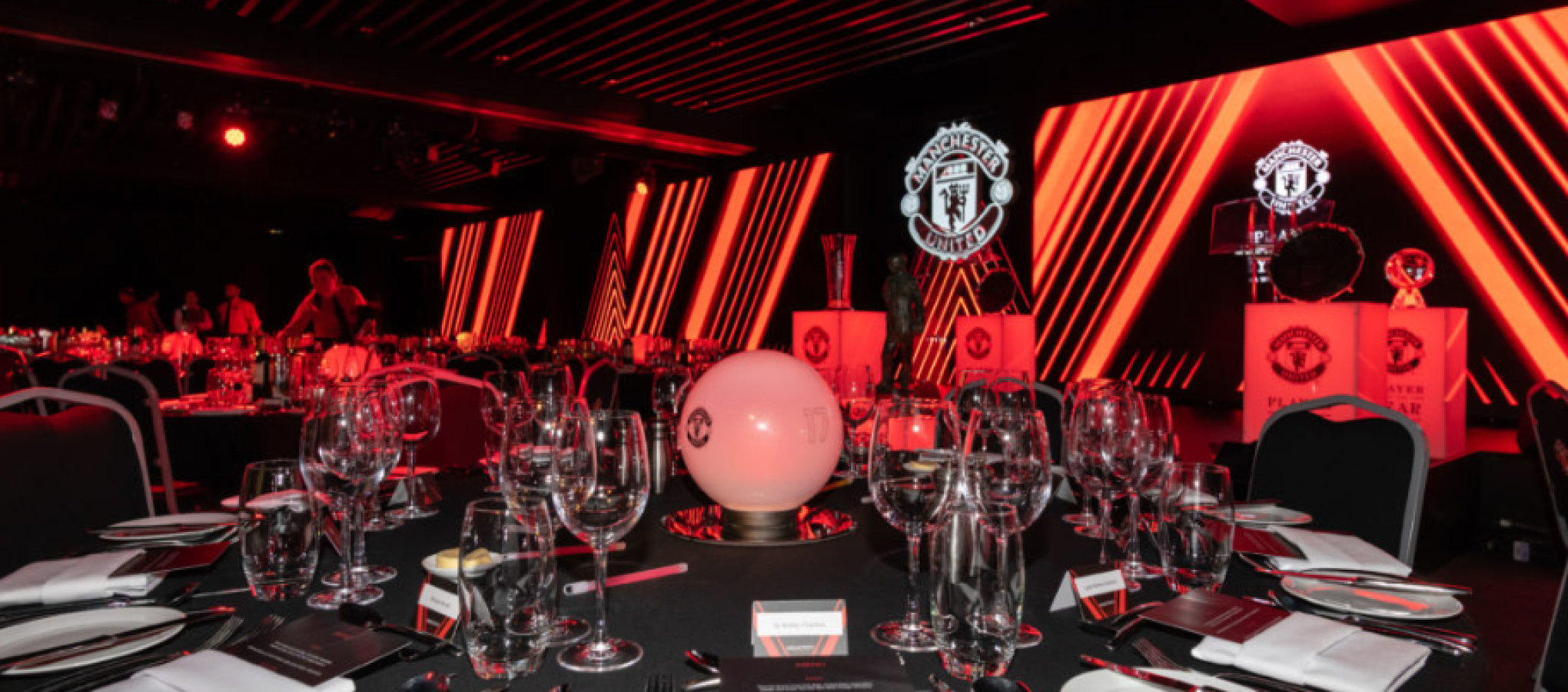Hosting a successful corporate event is an important way to connect with your clients and employees, build and foster relationships and maybe even promote a new product or service. Depending on the purpose of the event, it can be fun and entertaining, or more serious and informative. Regardless, the organisation is crucial to having a successful corporate event.
Here are our top tips to help you plan an event your bosses will never forget.
Have a clear purpose of the event
There are a plethora of reasons why you would need to organise a corporate event, from a Christmas party to launching a new product or for a team building exercise.
It is crucial that you understand why the corporate event is being organised, so you can plan the rest of the event accordingly.
Are you trying to impress potential clients, or are you having a crazy, let-your-hair-down party?
The type of event you are holding will determine the tone, the theme and even the venue itself. It will also allow you to plan what administrative processes need to be put in place, as well as assign the correct people to the correct projects in order to keep things under control. It will also help determine what technology is needed and what your clients, or colleagues, can expect.

Choosing a date
First things first, setting a date.
This can arguably be one of the most difficult points of the event management.
Trying to align diaries for the highest attendance and minimal conflicts is key.
It’s also important company events and/or meetings are considered in order to rule out your first pick of potential dates. This will ensure key members of the business are able to attend, as well as increasing the attendance rate.
Depending on the size of your company, you may be able to send out an email and/or poll for your colleagues to vote on the date they are available. You can certainly check calendars to ensure there are no other conflicts.
It becomes harder when you are managing an event for potential clients. Make sure you check for any key events and bank holidays. It would be wise to do some research on your client’s industry to ensure they do not have any big events coming up and depending on your relationship with them, you can always ask them for their availability and preferred dates.
Remember, when sending your invitations, the earlier the better. This means people can mark their calendar and save the date for you.
Know your budget and stick to it
Budgets can be tricky. Depending on the size of your company, and the generosity of your management, can really determine how the event pans out.
You need to be careful when spending company money to ensure you don’t overspend. It is recommended as a starting point, to stay within 90% of your budget and keep the other 10% for contingency. You never know what may come up when planning your event.
Be sure to keep a close eye on your spending and check the small print before you sign anything. You don’t want to miss any admin fee, or extra charges!
Remember to budget for getting the word out, too. If you are sending email invitations, you may not need much of a budget. But if you are hoping for something a bit more extravagant, you may need to set aside some of your budget. Let people know as soon as possible so they can mark their calendars.
You want to know prior to the event how many people to expect and whether you need to make any necessary adjustments.

Keep track of numbers
Numbers will impact everything, from the size and cost of the venue, to the food and the challenges you might face.
It’s important to have a number of people to invite plus the likelihood of their attendance.
If your event is on a larger scale, remember to consider helpers, waiters, media, plus ones, etc.
It can be difficult at first to determine numbers. You know how many people you have invited, but you don’t know the exact number of people who will attend. You also have to consider that some people may pull out last minute, and others may decide on attending last minute! Numbers will never be exact, but to help yourself as much as possible, set a deadline for their response. This will increase the efficiency of your response rate and therefore help you stay organised for the rest of the event planning.
Finding the perfect venue
Firstly, you need to know what area you want to hold your event in. In a city with lots of things to see and do around the corporate event, or somewhere more local and easily accessible?
Then you need to know what type of venue would suit your event. Are you looking for a boutique art gallery in the countryside of Yorkshire or an unusual venue?
Being clear on what expectations the venue needs to meet to please your clients or colleagues can really help narrow down the search. This also needs to be weighed against the number of guests and your budget.
You also need to think about the necessities. Do you need space for a projector, a table or alternatively, a dance floor, a dining hall? Have you asked your guests on the invitation if they have any special requirements? Making a list of your requirements will help ensure you remember the essentials, as well as negotiating with venues.

Considering the weather conditions
What time of year are you hosting your event? You need to be sure that the venue and travel requirements all align with the expected weather.
Of course, there’s no way to know for sure what the weather will be like so far in advance, but you know if you are planning an event in Winter, that there is a much higher chance of rain, and do you really want your colleagues or clients to have to travel far, or not provide any parking?
Travel arrangements
It can be difficult to suit the needs of everyone attending the event, as it is highly likely attendees are going to live in different areas.
Organising an event may mean some have to travel, but ensuring there is suitable accommodation onsite or nearby as well as local transport, is key. But whether you have to just take this factor into consideration or arrange it, entirely depends on your budget.
Will it be your job to manage the travel arrangements or will attendees be required to make there own way to the event? Make sure it is clear to your attendees by producing an Information Pack that covers everything they need to know about the local and travel arrangements/options.

Organising food arrangements
The type of catering you choose will depend on different factors. For example, what kind of event you are hosting, what your theme is going to be, your venue, your budget and if there are any special dietary requirements.
A lot of venues will provide in-house catering services, which tend to be affordable and more convenient, as it means less planning on your part.
Whether you choose in-house catering, or a third party, make sure you check out the reviews and ensure they have a good reputation.
You also need to think about the type of food you will be serving. Will it be a set menu, will your guests need to choose their food beforehand? Or will your event best suit a buffet?
Prior to the event, make time to speak with your caterers and taste the food first. You want to know the quality before you serve it to your clients.

Don’t forget drinks!
Are you hosting a bring your own alcohol party, or will you providing the tipple? Make sure you let your guests know what to expect so they can come prepared.
There are different options when it comes to providing drinks at a corporate event. Sometimes you may be able to negotiate this with your caterer, other popular options are:
- Providing each guest with drinks vouchers
- Having a set number of bottles per table (or per person e.g. half a bottle of wine per person)
- Drinks served by waiters, with a limited number behind the bar

Foresight of challenges
There are so many challenges and potential problems that can arise when trying to plan a successful corporate event. Sticking to your budget, venue cancellations or lack of attendance; just name a few.
They key to facing these challenges head on is to stay organised. If you know your budget, keep hold of agreements you have made (with your venue and caterers) and stay in contact with your guests, you are more likely to stay in control over how the event will pan out. Keeping track of the preparation and organisation of the event.
Wow factor
When you have the pressure of organising a successful corporate event, you want to make sure people remember it.
What you can do to make your event unique?
The attention to detail is crucial, so whether it’s something big like a presentation or something smaller like goody bags or a funky theme, you need to be sure it will create a lasting impact.
Here are a few tips to get those ideas flowing:
- Try customising the event to your employees/clients desires
- Choose an unusual venue, food or activities
- Make the event interactive, get people up on their feet, thinking and laughing
- Include some fun icebreakers people will not shiver at the thought of
- Team building exercises are great for moral, breaking down barriers and creating lasting relationships (with both employees and clients!)
Planning an event isn’t easy, nor is it simple. There’s a lot to consider, from the venue, the food, the travel and entertainment… you have a lot of people to make happy.
But it doesn’t have to be overwhelming.
By taking the right steps, staying efficient and having a mind map of each stage to help you stay organised, you can guarantee a great corporate event!
What are your top tips to planning a successful corporate event?
